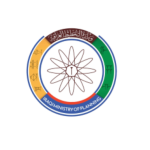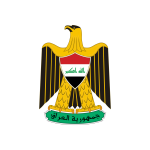Ministry tasks
The strategic goals and tasks of the ministry’s departments:
-
Conducting research and studies and developing plans and perceptions that achieve the goal of economic and human development in Iraq in cooperation with official and private agencies
- Preparing, implementing and following up the annual and five-year comprehensive development plans strategy.
- Provide indicators, statistical data and necessary information needed by state agencies, and establish a comprehensive national information base
- Supervision and follow-up of the international cooperation file with regard to grants and technical assistance
- Work to provide the requirements for the establishment of the information society in Iraq and make the most of the information revolution, spread its culture and enhance its practices in state departments and the general community, in order to reach the goal of e-government
- Sponsoring and supporting the Iraqi private sector, studying the reality of this sector and overcoming the difficulties and obstacles it faces
- Developing a detailed framework and proposing strategic projects that require huge capital and a longer period of time for implementation, in cooperation with the rest of the state agencies
- Evaluation and follow-up of government contracting activity in the field of investment and development
- Adjusting measurement, improving the quality of imported local goods, and promoting intellectual creativity in a way that enhances the national economy.
- Studying human development needs to contribute to the provision of job opportunities and employment and social services for the population.
- Preparing and implementing a strategy to reduce poverty and unemployment.
- Preparing and proposing work plans and programs that contribute to building institutional capacities and developing the human element. It is a tool and axis for achieving development.
- Promoting the concept of partnership and good governance and adopting international and local quality standards.
- Follow-up evaluation of the performance of the implementation of investment projects and raise the efficiency of implementation.
- Developing economic and social policies.
- Evaluating legislation related to the comprehensive development process.
- Transforming the current expected population increase from a burden on the development process into a productive force that represents a positive engine and a key actor in the development process, in order to achieve higher rates of economic growth and factors of population welfare.
-
Preparing a sectoral, spatial, rural, urban, and local strategy that achieves economic efficiency, exploits comparative advantages, and achieves social justice.








